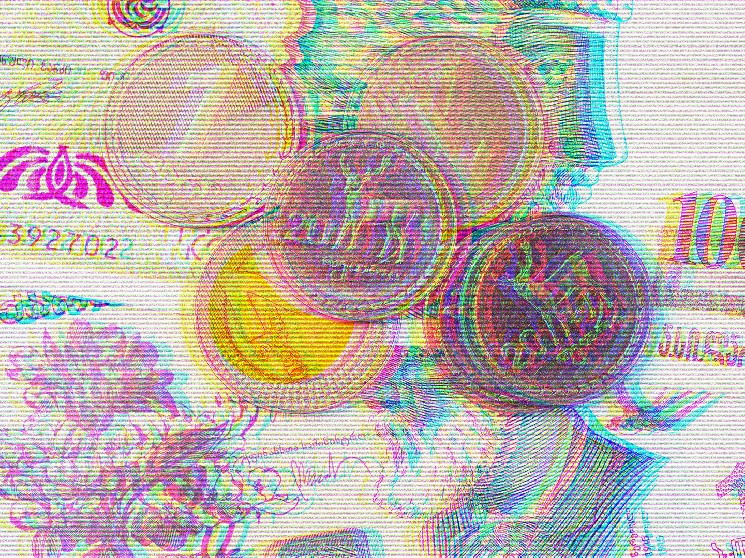Coinbase Threatens to Sue Crypto Traders Who Profited From Pricing Glitch

Coinbase, the world’s second-largest cryptocurrency trading platform by volume, is hinting it may sue about 1,000 users in the republic of Georgia for taking advantage of a pricing glitch.
On Aug. 29, about 1,000 Coinbase users in the country straddling Europe and Asia exploited the “arbitrage opportunity” when the lari, the local currency, was priced at $290 rather than $2.90 for about six hours on Coinbase. The group constitutes only 0.001% of the U.S.-based company’s users.
The glitch was a fault of a “third party,” Coinbase told CoinDesk then, without identifying the company. As such, the incident illustrates a longstanding concern of financial regulators: The risks posed to institutions by external partnerships.
«When everything is done within a bank, we know exactly who is accountable when things break,» said U.S. Comptroller of the Currency Michael Hsu last week. When work is split between an institution and fintech startups with different business models, however, “that’s when risk can get lost.»
The amount of money Coinbase lost on the Georgia snafu, which the company refused to disclose, was, according to a spokesperson, “immaterial.”
Nevertheless, “Coinbase is working with law firm Gvinadze & Partners to assist in retrieving the improperly credited funds,” a Coinbase spokesperson told CoinDesk in a written statement.
“We cannot comment on the status of specific demands or litigation,” the company representative said. “However, users that return the improperly credited funds will not be subject to further legal proceedings.”
Run on ATMs
Avtandil Kutchava, host of the Georgian television show “Crypto Bazari,” told CoinDesk that about 470 people reached out to his team about the situation. Altogether, people could have made tens of millions of dollars on trades with the erroneous lari rate, Kutchava estimated, and that day ATMs in Tbilisi, Georgia’s capital, ran out of banknotes as traders rushed to cash out their jaw-dropping profits.
For example, one bitcoin was trading for 5,000,000 to 6,000,000 lari, or around $1.7 million apiece, while the average price in late August was just 55,000 to 60,000 lari.
CoinDesk talked to four traders who took advantage of that pricing glitch on a group video call. All of them said they had their bank accounts briefly frozen hours after they sold crypto for lari and withdrew fiat to their bank accounts. Several days later, the accounts and bank cards were unfrozen without any action from them.
However, on Sept. 24, all four received emails from Gvinadze & Partners saying that “Coinbase is determined to use any and all available legal means to recover improperly credited funds as soon as practical” and warning that if the users fail to respond to the email and return the money, legal action could be taken against them.
Marked ‘suspicious’
Coinbase did not confirm whether the exchange reached out to the Georgian banks asking to freeze traders’ accounts. At least two of Georgia’s major banks, Bank of Georgia and TBC, froze the accounts of the users who took advantage of the glitch but then unfroze them, the traders said.
One of the users who talked to CoinDesk, a manager at a Georgian tech startup and amateur trader named Tornike (he asked to withhold his surname), sold some Stellar lumens (XLM) on Aug. 29 while on vacation in Grigoleti, a small resort on the Black Sea shore.
He immediately withdrew his profits into his Bank of Georgia account and hit a nearby ATM to double-check: the money was available for him to withdraw. But several hours later, Tornike said, he tried buying some wine in a local store and his payment wouldn’t go through – his debit card was frozen. After three days, something changed and Tornike was able to use his bank accounts again.
Blockworks, a news site, cited a text message received by one of the traders from their bank. “Hello, we have marked your transactions with Coinbase as suspicious and we’re locking all your accounts and cards,” one bank’s blanket text message to customers reads. “Please be aware that Coinbase may request clawback of the funds. Sorry.”
Neither of the two banks responded to CoinDesk’s request for comments by press time. Gvinadze & Partners also did not respond.






 Bitcoin
Bitcoin  Ethereum
Ethereum  Tether
Tether  USDC
USDC  TRON
TRON  Dogecoin
Dogecoin  Cardano
Cardano  Bitcoin Cash
Bitcoin Cash  Monero
Monero  Chainlink
Chainlink  LEO Token
LEO Token  Stellar
Stellar  Zcash
Zcash  Litecoin
Litecoin  Hedera
Hedera  Dai
Dai  Cronos
Cronos  OKB
OKB  Tether Gold
Tether Gold  Ethereum Classic
Ethereum Classic  KuCoin
KuCoin  Cosmos Hub
Cosmos Hub  Gate
Gate  Algorand
Algorand  Dash
Dash  VeChain
VeChain  Tezos
Tezos  Stacks
Stacks  TrueUSD
TrueUSD  Decred
Decred  IOTA
IOTA  Theta Network
Theta Network  Basic Attention
Basic Attention  NEO
NEO  Synthetix
Synthetix  Qtum
Qtum  0x Protocol
0x Protocol  Ravencoin
Ravencoin  Zilliqa
Zilliqa  DigiByte
DigiByte  Nano
Nano  Siacoin
Siacoin  Holo
Holo  Numeraire
Numeraire  Waves
Waves  Enjin Coin
Enjin Coin  Ontology
Ontology  Status
Status  BUSD
BUSD  Hive
Hive  Pax Dollar
Pax Dollar  Lisk
Lisk  Steem
Steem  Huobi
Huobi  OMG Network
OMG Network  Bitcoin Gold
Bitcoin Gold  NEM
NEM  Augur
Augur